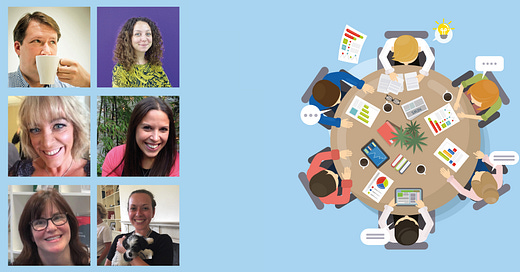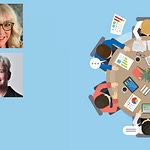Key Takeaways
Below is a quick summary of some of the key thoughts from our guests.
Helen Smith – Senior Legacy Manager, Cancer Research UK
Helen co-hosted this episode of the Legacy Roundtable and led discussions around the topic of Stewardship, an area that has changed a lot over the years, but one thing that has stayed true throughout is people’s willingness to support good causes. She has been working with 42 other charities since May, giving up her spare time to talk about legacy fundraising and stewardship plans and spoke about charities of all sizes facing the same problems but on different scales.
Fundraising has had negative connotations over the years, so supporter journeys are increasingly important moving forward. Helen discussed how stewardship should embrace the relationship with supporters, making sure they have a great experience with the charity as people want to feel like they’re part of a charity rather than just an external contributor. One of the major changes in donor behaviour over the years is that supporters want to know more and receive a personal connection. Building personal relationships can be difficult for larger charities, but little things (like handwritten cards or phone calls) generate a positive response from enquirers and pledgers.
Claire Routley – Legacy Fundraising Consultant
Claire discussed the importance of stewardship and how to make it memorable. She refers to a research conducted by Legacy Foresight which found that only half the pledgers ultimately left a gift in their will. This matches the research carried out by Prof. Russell James which shows the 10-year retention rate for legacies to be around 55% (see pg 59 of the research paper). If we put more focus into stewardship, the return would be a lot higher than continuously gathering new leads.
On the other side, there’s not a lot of research on why people take charities out of their will, but one reason that has emerged is that charities slip out when people make a new will and forget the legacy gift they had originally pledged. Research shows that to create memorability, you need to think about attention, emotion and novelty.
Recently, Claire worked on Legacy Inspire project in which a mystery shop exercise of legacy communications from 50 different charities was carried out. She has recorded a session discussing this project for the Institute of Fundraising, which will go live from Monday 5th October.
Beth Thompson – Senior Legacy Promotions Manager, Macmillan Cancer Support
Beth discussed Macmillan Cancer Support’s approach to stewardship and how it’s changed over the last six months. Macmillan steward their pledges, but also included enquirers in any mass communication they send. Their journey has three touch points, and the first stage is a phone call, which is prioritised over email. They also have a free will service which they offer.
Over the last six months, one of the biggest impacts has been on their events programme and it’s been a huge challenge to navigate as it’s an important part of their stewardship plan. As a result they have pivoted to online events and just held their first webinar. Organising this involved working with the IT team, having to consider data protection and managing viewer interaction.
They have started using text messages to remind supporters to log on before the event, which has worked well and is something they will continue doing moving forward. Video appointments for their free will service have also been introduced and has been successful for them.
Michelle Adelman – Legacy & In Memory Fundraising Manager and Jess Hood – Legacy & In Memory Development Officer, Battersea Dogs & Cats Home
At Battersea, stewardship is a responsibility to care for their supporters. Over the years, they’ve had the opportunity to build meaningful relationships with supporters and having a small legacy team of 4 people has made it easier to be personal. They treat pledgers and enquirers equally and they received the same communication.
Previously, they held events where pledgers would be invite to Battersea for a tour and a chance to meet the team and animals. Over the last few months, they have developed a series of webinars and invited legacy supporters to these events, which worked well and Battersea will continue these virtual events moving forward to make it more accessible to supporters who are unable to travel. They have also introduced a new mailing recently: the tea bag. Alongside their ‘good news’ mailing, they included the tea bag which has a ‘let’s catch up’ CTA to let pledgers and enquirers know that Battersea are still here for them.












Share this post